If you need to leave your vehicle sitting for a long period, you might have heard that the tires can lose air over time. Is there any truth to this? We researched vehicle tires from several professional sources. So, you'll know for sure if this theory holds any air.
Leaving your vehicle parked for a long period is bad for the tires. Over time, you will notice that the air slowly leaves out of the tires, which eventually causes them to go flat.
Since stationary tires lose air over time, we'll examine the reasons why. You might also be curious how long a car can sit without damage to the tires. Or, if you can repair damaged tires. For the answers to these questions and more, read on to see what we've uncovered.
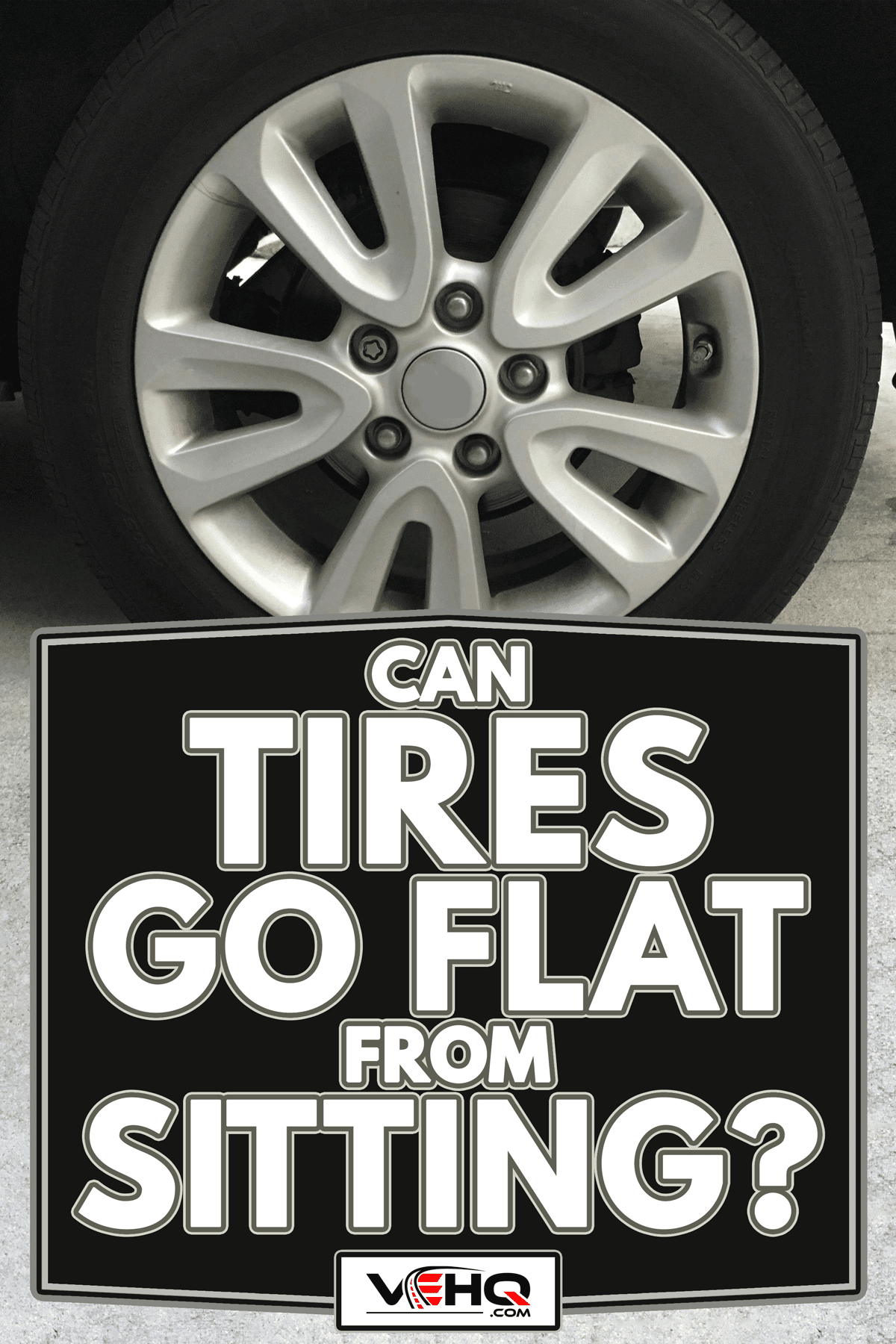
What Causes Air To Leave Stationary Tires?
The main reason your tires will lose air over time is because of our old friend, gravity. Cars and trucks are heavy pieces of machinery.
Although tires are engineered to withstand a lot, this weight pushing down on one spot on a tire eventually becomes too much for it to handle.
Three things will happen to your tires if you leave your vehicle stationary. Let's examine them in greater detail, so you'll know exactly what is happening.
Tire Deterioration
All that weight will cause the air to slowly seep out. Even if a car gets driven regularly, you still lose a bit of air. But if you're paying attention, you are likely to keep your tires properly inflated, so they maintain their recommended PSI.
If left sitting in one spot, tires will slowly deteriorate. The air that escapes puts even more strain on the tires. A less than full tire cannot handle the weight of the vehicle like a fully inflated one.
So, these tires will become damaged from this. They will also slowly rot, making them unsafe to drive on even after they have been re-inflated.
Flat Spots
The part of the tire that gets pressed onto the ground by the weight of the car will gradually turn into a spot. And that spot will be flatter than the rest of the tire.
When you finally drive the vehicle, these flat spots will make it much more difficult to maneuver the vehicle.
Also, this can lead to an accident on the road. So, if you have left your vehicle parked for a long time, be sure to inspect the tires thoroughly for flat spots.
Tire Bubbles
If there are areas on your tires where the tire has worn too thin, air bubbles might form in the tire. These bubbles are dangerous if driven on, as they will cause a blowout.
It's best to not leave your car parked for an extended amount of time with the tires on it. But if you have to drive a car that's been sitting around parked for a while, carefully inspect the tires before you drive.
Also, be certain that you inflate the tires to the factory-recommended PSI.
How Long Can A Car Sit Before The Tires Go Flat?
Clearly, your car or truck isn't in motion all the time. So, it's perfectly okay for it to sit for short periods without being driven. But how long can a vehicle sit in one place without suffering any damage?
Experts state flat spots will start forming on tires after about a month spent sitting in one spot. The exact amount of time will depend on the condition of the tire, as well as the type of tire installed on the car.
If you are going to need to leave your car in one spot for a month or longer, there are certain steps you should take to minimize issues.
Putting the vehicle up on blocks and removing the tires will certainly save your tires the damage from exposure to pressure.
You'll also want to disconnect the battery. Do this, so that it won't get drained completely when you need to start the car up again.
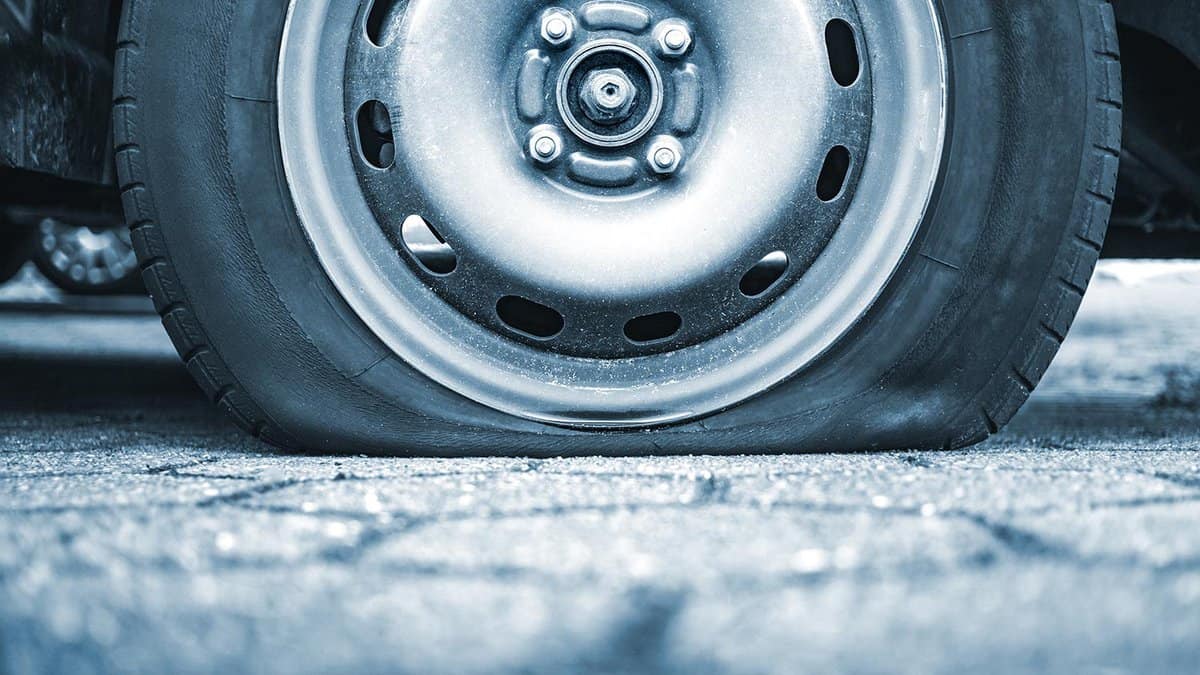
Why Did My Tire Go Flat Overnight?
It can be frustrating to discover a flat tire first thing in the morning. It was fine last night. So, what happened?
Vandalism
Someone might have intentionally damaged your tires. Make sure no one popped your valve stems out. Look for slash marks as well, to make sure no one made slits in them.
While not the most common reason for a tire becoming flat overnight, it happens.
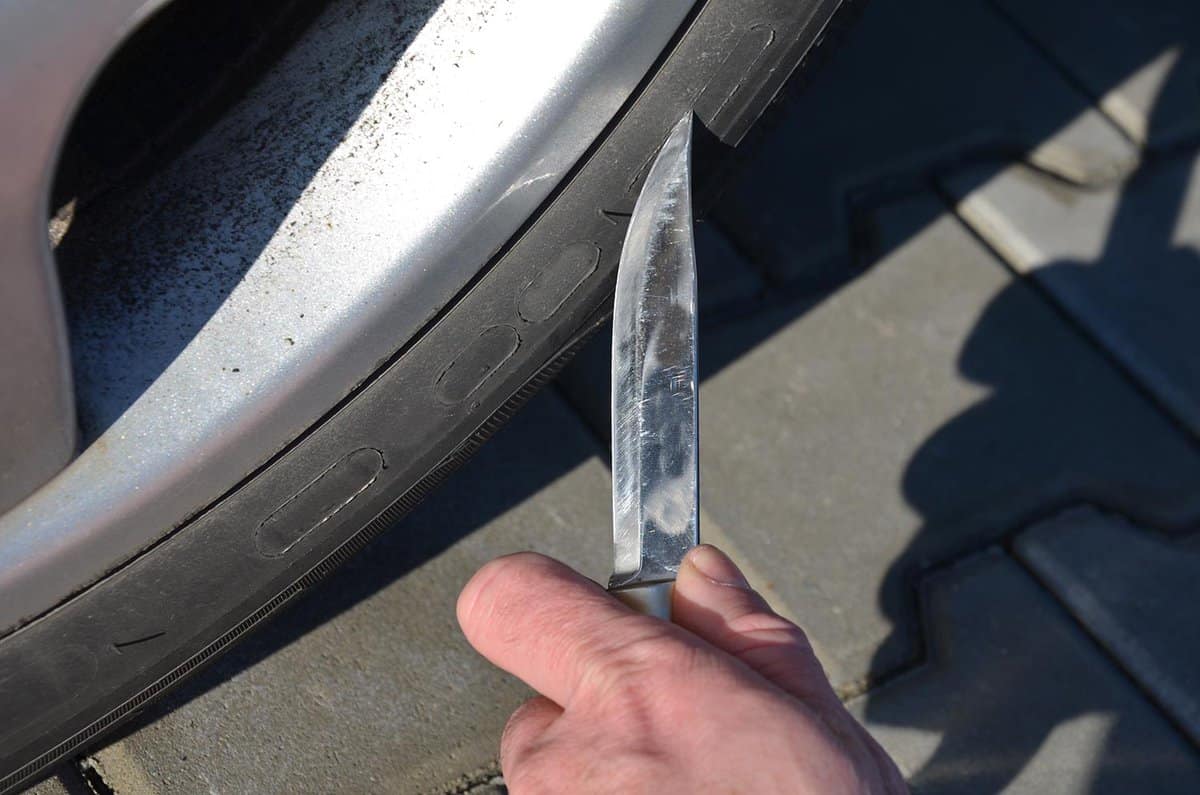
Puncture from Foreign Objects
You might have run over a screw or a nail. While these will sometimes cause slow leaks, they can certainly make a tire go flat fast under the right conditions.
When you fill up your tire with air, listen for a hissing sound. That can help you locate the area where an object entered your tire.
Depending on the location of the object and the extent of the damage, you might need to get the tire plugged or patched.
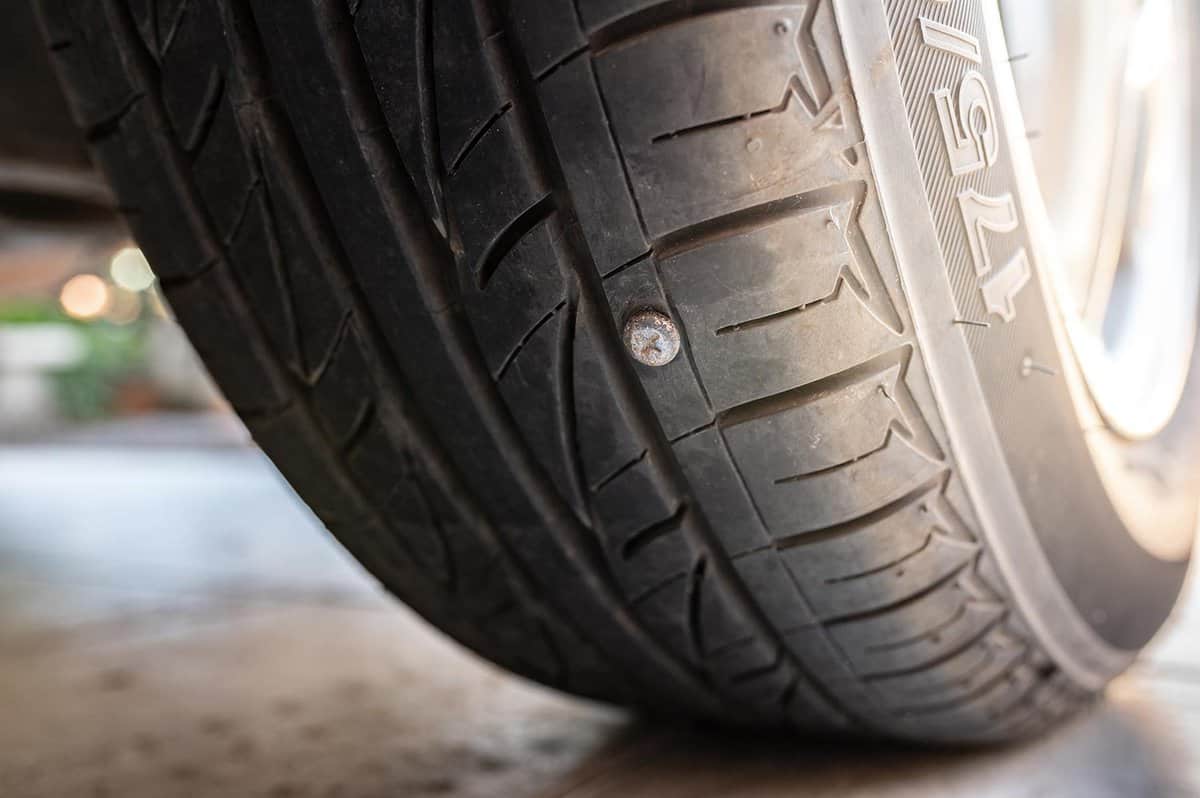
Road Damage
Curb checking, potholes, and other accidental bumps and scrapes can do a number on your tires. If damage from these situations happens just before you park the car for the night, it shouldn't surprise you that air would leak out of the tire overnight.
If you know you ran over something that you shouldn't, or if you hit a pothole hard, take some precautions. After parking, inspect your tires carefully to see if there is any damage.
It's best to know immediately if you need to repair or replace a damaged tire rather than wait and see in the morning.
What Is The Most Common Cause Of A Flat Tire?
By far, the most common cause for a tire to go flat is accidentally running over a sharp object. A fully inflated tire might very well run right over a nail or screw and end up with no damage at all.
A tire low on air is much more likely to be punctured. So, this gives you another incentive to keep your tire pressure up to where it belongs.
Nails, tacks, screws, and other objects with pointy ends wind up deflating millions of tires in the United States each year. These might not cause the air to escape quickly, but creates a slow leak.
That's why it's important to inspect your tires regularly, and make sure they are at the recommended amount of PSI.
Check your tires every time you fill them with air. Giving each one a once over with your eyes won't take long. And neither will checking their pressure with an approved tire gauge.
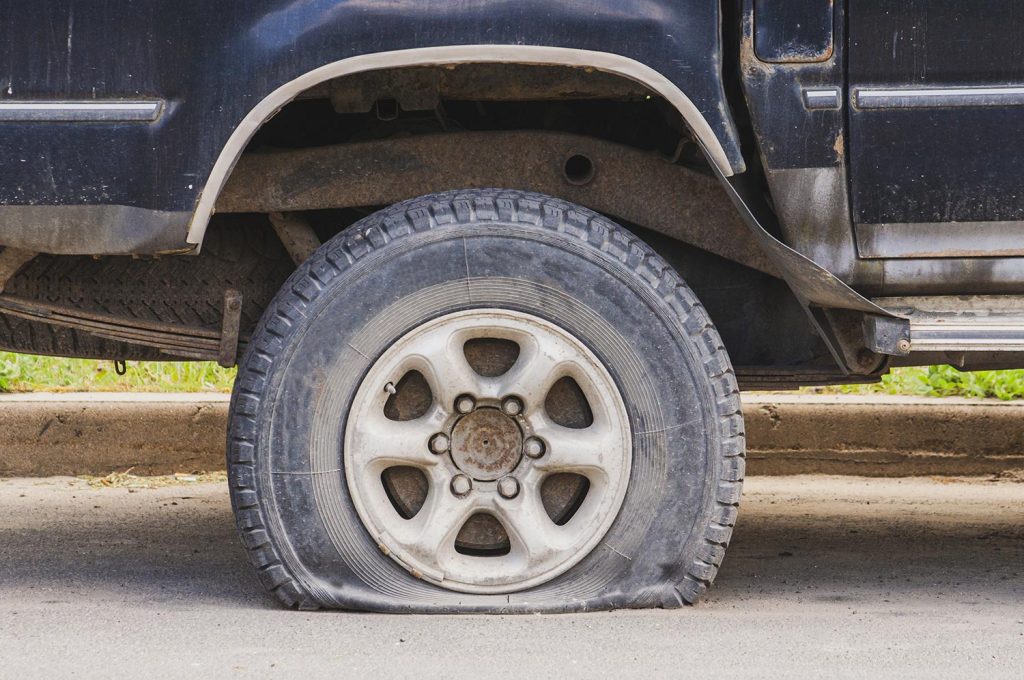
Can Damaged Tires Be Repaired?
Sometimes, you can repair a punctured tire by plugging it or having it patched.
However, if the damage is to the sidewall of the tire, getting it plugged or patched won't work. Unfortunately, this means you'll need to replace the tire.
Depending on the drive configuration of your vehicle, replacing one tire out of necessity means that you'll need to replace all four.
All-wheel drive vehicles will most certainly have to have a full replacement. Uneven wear from tire to tire will damage the vehicle.
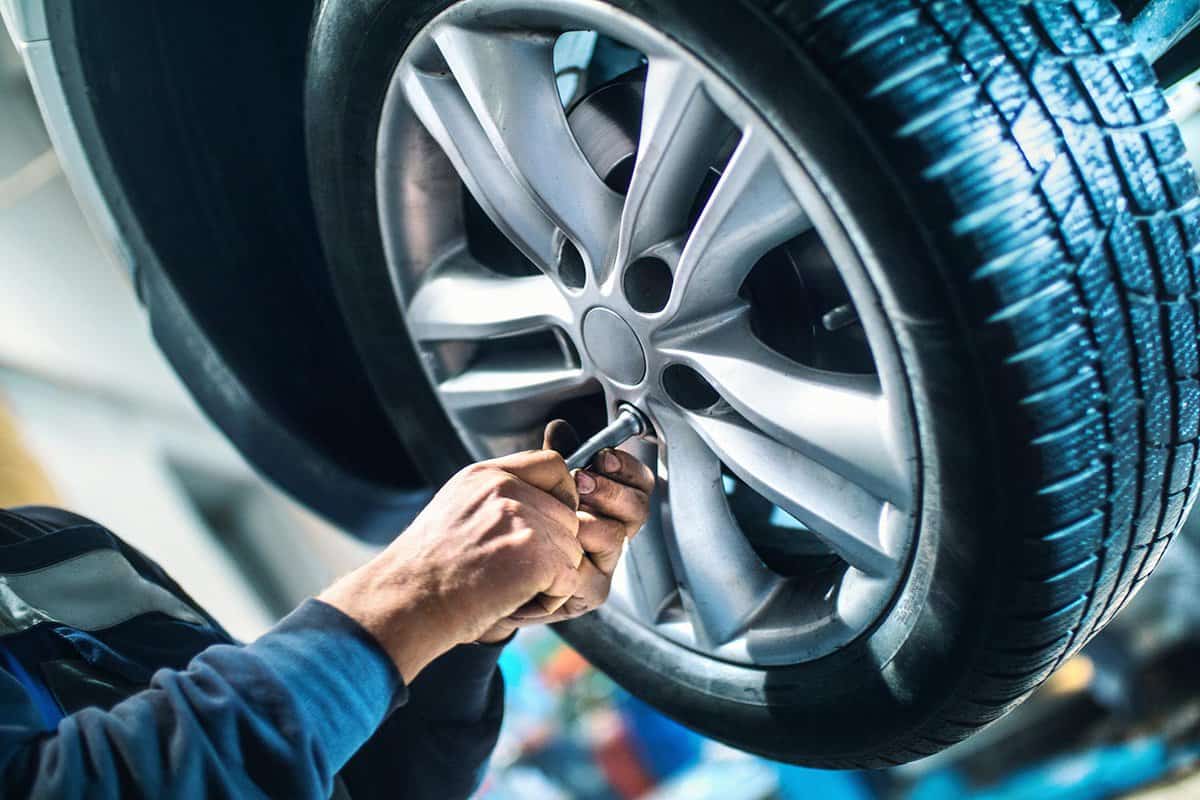
Final Thoughts
When tires sit for a month or longer on an immobile vehicle, they will lose air and might become too damaged to repair.
Routinely monitor your tires to make sure they are free of roadway debris. Don't forget to ensure to inflate tires properly, and to the recommended PSI.
Certain types of damage to tires is repairable, saving you from replacing a costly tire. Drive safe!
We hope this post on tires answered all of your questions. For more information, we suggest reading the following automotive posts:
How Long Tires Should Last On A Brand New Car?
